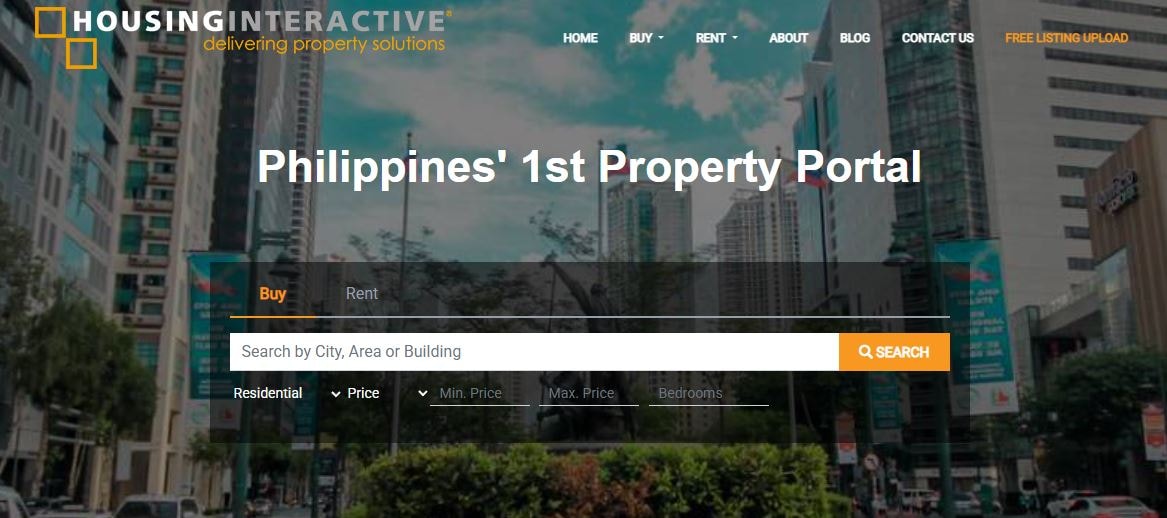
Executive Summary
By Sheila Viesca, Ph.D.
With insights from John Riad, CEO of HousingInteractive
When you’re ready to make a major purchase like a new home or an investment property, a mix of excitement and anxiety is completely normal. The prospect of finding your dream space is thrilling, but the real estate market, especially in the Philippines, can be complex and sometimes overwhelming. In this dynamic environment, one thing stands out as the ultimate best practice: trust, backed by a solid track record.
Trust isn’t just a warm feeling or a pleasant handshake; it’s the very foundation of a successful investment. In the Philippines, where the market can be volatile, this trust is a non-negotiable part of the process. It’s built on a company’s proven history of reliability, transparency, and ethical conduct. A company that exemplifies this standard is HousingInteractive, a true pioneer that has built its reputation on a long-standing record of integrity and success.
“Trust” in the Philippine Real Estate Context
For a Filipino real estate client, “trust” goes far beyond a broker’s friendly demeanor. It’s a deep confidence that your legal, financial, and personal interests are protected.
Types of Trust in Real Estate
In the real estate market, trust is a multifaceted concept that goes beyond a simple handshake. It’s the confidence a client has in a broker, developer, or company based on their demonstrated integrity across three key areas: legal, financial, and ethical. This multi-layered trust is what protects a buyer’s investment and ensures a smooth, worry-free transaction.

1. Legal Trust
Legal trust is the foundation of any secure real estate transaction. It’s the assurance that the property you’re buying is legally sound and that your ownership will be protected. This type of trust is built through diligent verification and transparency.
- Clean Title: The most critical component of legal trust is a clean title. This means the property’s title is free from any liens, mortgages, or legal disputes that could challenge ownership. A trusted real estate professional will perform thorough due diligence to ensure the title is unencumbered.
- Legitimate Documentation: All legal documents, including the Deed of Sale, are legitimate, accurately reflect the terms of the transaction, and are properly authenticated. It is essential to gather and prepare all the necessary documents to ensure a smooth and legally compliant transaction.
- Permits and Regulations: Trust also comes from knowing that all necessary building permits and compliance certificates are in place, preventing future legal issues with local authorities. This is particularly important for new construction or renovated properties.
2. Financial Trust
Financial trust ensures that your money is secure and that the transaction is conducted in a financially transparent manner. In a significant investment like real estate, this trust is paramount to preventing fraud and hidden costs.
- Transparent Payments: A trusted partner provides a clear, detailed breakdown of all costs associated with the purchase, including taxes, fees, and commissions. This prevents any unwelcome financial surprises later on.
- Fund Security: Reputable real estate companies and professionals use secure methods to handle client funds. The use of escrow accounts or trust accounts, which are managed by a neutral third party, is a common practice that safeguards payments until all conditions of the sale are met. This ensures that a client’s money is not released to the seller or broker until the title has been successfully transferred.
- No Hidden Fees: A key sign of financial trust is the absence of hidden fees or undisclosed charges. A trustworthy professional will be upfront about all potential costs, ensuring the client has a complete understanding of their financial obligations.
3. Ethical Trust
Ethical trust is the moral compass of the real estate industry. It’s the confidence that your broker or agency is acting in your best interest, not their own, and will prioritize your needs above all else.
- Client-First Approach: The broker or company provides honest advice, even if it means walking away from a deal that isn’t right for the client. They are committed to finding the best property for you, not just making a quick sale. Acting in the best interests of the client and any beneficiaries involved is always the top priority.
- Full Disclosure: Ethical trust requires full disclosure of all relevant information, including any known issues with the property, potential risks, or market conditions that could impact your investment. Transparency and open communication help prevent disputes and protect the rights of the beneficiary and other beneficiaries.
- Professional Conduct: A commitment to ethical practices and compliance with all relevant laws and regulations, such as those governed by the Professional Regulation Commission (PRC), is a hallmark of a trustworthy real estate partner. This professionalism guarantees that the entire transaction is conducted with integrity.
The “Track Record” as a Blueprint for Success
A solid track record is the blueprint that proves a company can be trusted. It’s more than just how long they’ve been around; it’s a history of consistent, reliable performance. A proven investment strategy, along with the ability to monitor market and economic conditions, is a key indicator of a reliable partner.

Key Elements of a Strong Track Record
| Element | Description | Why It Matters |
|---|---|---|
| Longevity & Pioneering | Years of experience and early adoption of new technologies or methods. | Demonstrates deep industry knowledge and trust. |
| Consistent Project Delivery | History of completing projects on time and as promised. | Shows reliability and commitment to quality. |
| Diverse Portfolio | Experience handling various property types and locations. | Indicates versatility and market expertise. |
| Client Testimonials & Reviews | Positive feedback and real experiences shared by past clients. | Builds social proof and credibility. |
| After-Sales Service | Continued support after the sale is completed. | Reflects dedication to client satisfaction. |
How to Evaluate a Track Record
- Request a list of completed projects with timelines.
- Check for developer or broker licenses and accreditations.
- Read online reviews and seek testimonials from previous clients.
- Verify after-sales support policies and responsiveness.
The HousingInteractive Advantage: A Case Study in Trust and Track Record
HousingInteractive is a prime example of a real estate brokerage company that has turned trust and track record into its core business model. By pioneering online real estate in the Philippines, they made the property journey more accessible and transparent. HousingInteractive is committed to helping clients navigate complex transactions and trust administration, ensuring efficiency and security throughout the process.
With a deep understanding of the local market and a continuous effort to stay informed about changing regulations, HousingInteractive provides clients with accurate pricing, identifies opportunities, and anticipates potential red flags. Not all real estate agents are created equal—HousingInteractive stands out for its dedication to client interests and professionalism.

What Sets HousingInteractive Apart
- Pioneering Online Brokerage: Simplified property search and transactions ahead of market trends.
- Comprehensive Property Listings: Detailed and accurate information to empower buyers.
- Licensed and Knowledgeable Agents: Providing genuine neighborhood insights and expert advice.
- Client-Centric Approach: More than just selling properties, they act as a trusted advisor through every step.
- Strong Market Presence: Focused on prime economic hubs such as Makati, Bonifacio Global City, Ortigas, and Alabang.
A Practical Checklist for Finding Your Trusted Partner
To protect your investment and secure your peace of mind, you need to do your homework. Don’t just rely on what you read on a website. Make sure your partner complies with all relevant municipal laws and national regulations to ensure proper management and avoid penalties.
1. Research Beyond the Website
- Verify the company’s PRC (Philippine Regulation Commission) license numbers.
- Look for DHSUD accreditation.
- Read online reviews on multiple platforms.
- Visit property forums and social media groups.
- Talk to current residents or previous clients for firsthand feedback.
2. Ask the Right Questions
- Can you provide a list of your completed projects?
- Can I see your PRC license and DHSUD accreditation?
- What is the after-sales process like?
- How do you handle client funds and ensure transparency?
- What steps do you take to avoid legal issues or disputes?
3. Trust Your Gut
- Be cautious if a deal sounds too good to be true.
- Look out for red flags such as vague answers or reluctance to provide documentation.
- Prioritize companies that demonstrate clear communication skills and ethical practices.
Your Investment, Your Peace of Mind
Ultimately, a diligent approach to finding a reliable partner is the key to a successful real estate investment. Trust, built on a solid track record, isn’t just a nice-to-have; it’s a fundamental requirement. By choosing a partner with a proven history of success and integrity, you’re not just finding a house; you’re securing your peace of mind and protecting your investment for the future.
Ready to see a real-life example of a company with a proven track record? Explore the properties and services on HousingInteractive’s website to see how a trusted partner can simplify your property journey.

























